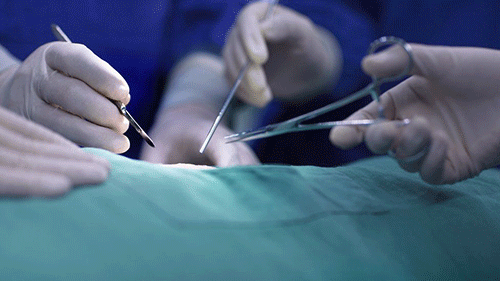Following a 2009 recommendation by the World Health Organisation and UNAIDS for member countries to incorporate voluntary medical male circumcision into the minimum HIV prevention package, Namibia has recorded over 200 000 circumcision procedures.
Reaching its target of 300 000 circumcisions is a work in progress, said voluntary medical male circumcision (VMMC) Demand Creation Manager at the health ministry Johannes Haufiku, citing a low uptake of male circumcision between 2014 and 2017 due to low levels of awareness.
But through donor support, the ministry intensified the awareness campaign, and results were evidently on the increase.
“By 2019, the programme recorded a milestone achievement of 150 000 circumcisions. The service was, however, affected by the Covid-19 pandemic and as of 2021, over 200 000 circumcisions were reported,” he added.
Haufiku said resources such as infrastructure, medical consumables, staffing, transport and more for the campaign are being provided through a partnership between the Namibian government and donor agencies, including the Global Fund and Pepfar.
“The key challenge in the implementation of the national VMMC programme is financial resources to allow services to reach the remote areas of our country. Added to that are the resources needed to train more clinicians to VMMC services at every government installation”, he noted.
The campaign’s overall goal is to reduce new HIV incidences by circumcising 300 000 sexually-active men in Namibia, and thus far, the Kavango East and West are among the regions which recorded high numbers of circumcisions per month.
“The age group most reached by the public system are boys from the ages of 15 to 20, while the older age groups are in moderate numbers. There is, however, a high uptake of those 21 and above through private facilities,” observed
Haufiku.
Traditional Way
Queried on the role traditional circumcisers play, Haufiku said they have been in operation in Namibia for many years, and the health ministry has created awareness amongst traditional circumcisers to observe the necessary health precautions during procedures, especially for HIV prevention.
Traditional circumciser Tjitavi Kambausuka (62) said he was exposed to such information and hygiene training, including receiving medical gloves, when Dr Libertina Amathila and Dr Richard Kamwi were health
ministers.
Kambausuka, who has been circumcising since 27 March 1993, said getting circumcised has been part of their culture as Mbanderu and Herero people, and he is happy that other tribes are now jumping onto the bandwagon, saying it is a necessity for health reasons.
“Imagine an uncircumcised cattle herder in the field for the whole day; that wouldn’t be good for the body,” he stated passionately.
His services are also in high demand in neighbouring Botswana, from where he is constantly called to perform the task.
“I do not only cut Ovahereros; anyone who wishes to be cut is welcome.”
Knowledge-sharing is important in this endeavour because life is at stake. While in Johannesburg (SA), I suggested that young boys who go for initiation should be accompanied by nurses because sometimes they lose a lot of blood during these processes, and they don’t know how to manage that,” he stated.
Kambausuka feels that more awareness should be spread on the health benefits of circumcision, and to incorporate traditional circumcisers into the healthcare system and aid where they
can.
He further suggested that to get good figures, the ministry should closely work with traditional circumcisers, and they deserve to get proper attention, unlike foreign experts the country ropes in now and then.
Hygiene
One of those who decided to get the “smart cut” because of its health benefits is Eliphas Itewa, who in March 2021 escorted his cousin to a clinic in Otjiwarongo to get circumcised, and ended up getting it himself.
“I looked at the benefits of being circumcised, and just went for it. It reduces the chances of contracting HIV, plus the cut is a normal one like any other, and I healed quickly,” explained Itewa, a Namibia University of Science and Technology student.
He stressed that personal hygiene is important, and encouraged his uncircumcised peers to ensure cleanliness, especially in the genital area. –psiririka@nepc.com.na



